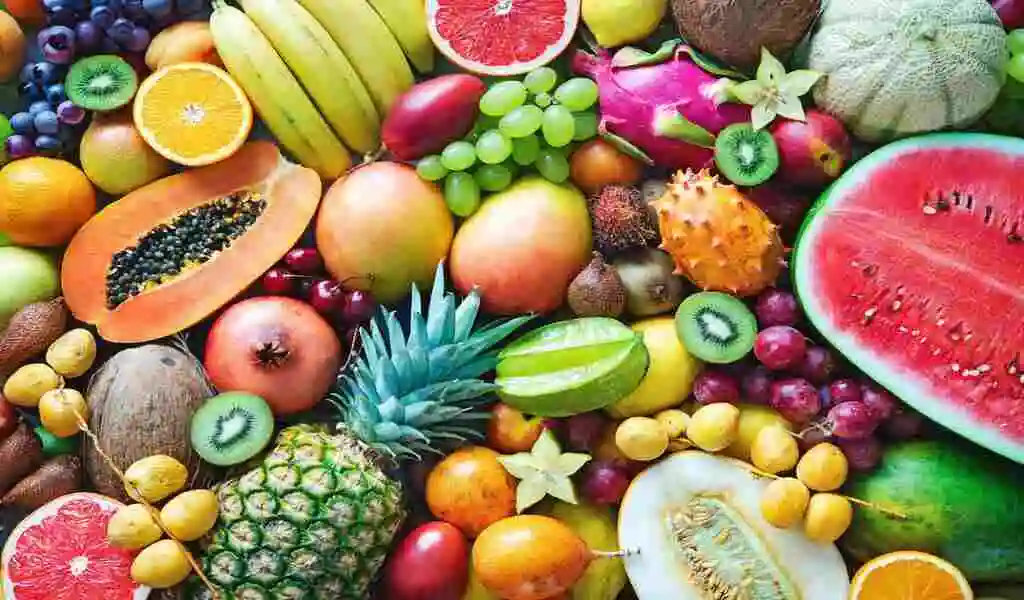Health
Dietitian’s 10 Fruits You Should Eat Every Week

(CTN News) – Did you know eating Fruits 30 different kinds of plants in a week can positively impact your gut microbiome, according to research published in 2018?
Healthy guts can improve heart health, immunity, and even mental health. Keep your gut bacteria happy by eating more fruit—especially these ten fruits that are packed with health benefits.
Boost your body’s vitamin and antioxidant levels with these fruit recommendations every week, backed by experts.
1. Blueberries
Nutritionist at Pritikin Longevity Center Lon Ben-Asher says blueberries are nutritional powerhouses. Their blue/purple color comes from anthocyanins, phytochemical flavonoids that act as antioxidants and kill free radicals.”
The antioxidants in blueberries also reduce inflammation in the body, as well as vitamins C, K, and manganese. In people with blood sugar compromise, blueberries also help blunt the glucose spike by providing soluble fiber.
2. Apples
According to Ben-Asher, apple polyphenols reduce the risk of many chronic diseases, such as cardiovascular disease, diabetes, and cancer. “It’s also rich in fiber, which supports Fruits gastrointestinal health.”
It’s pertinent to note that while these fibers are different (soluble fiber absorbs water and forms a gel, while insoluble fiber bulks up stools and makes it easier to travel to the bathroom), apples contain both, helping you feel full.
3. Oranges
In addition to vitamin C, oranges contain potassium, iron, calcium, vitamin E, and numerous B vitamins. With vitamin C, which builds collagen. In a 2019 study published in PLOS One, orange pulp also contains polyphenols that protect cells.
4. Prunes
Prunes are also a rich source of nutrients in dried fruits. Prunes are known for their high fiber content, which helps bulk up stools and makes getting to the bathroom easier. A prune also contains a high amount of vitamin K, which is critical for blood clotting and bone building.
5. Raspberries
Raspberries contain the highest amounts of fiber of all fruits, with 8 grams per cup, or 32% of your daily value. Maintaining a healthy gut microbiome and maintaining blood sugar levels requires a sufficient amount of fiber in your diet.
In addition to being a rich source of magnesium, raspberries also help regulate blood sugar levels, muscle function, and blood pressure, according to the National Institutes of Health.
6. Blackberries
According to the USDA, blackberries have almost 8 grams of fiber per cup. Blackberries are known to be rich in antioxidants, manganese, copper, vitamin A, vitamin E and vitamin K. Like blueberries, blackberries contain anthocyanins.
7. Bananas
According to Ben-Asher, bananas contain dietary fiber, which keeps food in your stomach longer, reducing hunger and reducing the risk of obesity. In addition, they are Fruits very high in potassium, which is an electrolyte the body needs and is implicated in blood pressure control and stroke prevention.
8. Tomatoes
In spite of the fact that tomatoes are typically associated with vegetables because they grow on vines, they are considered fruits. Tomatoes also contain lycopene, another powerful antioxidant that helps reduce the risk of chronic diseases and eliminate free radicals.
9. Watermelon
As well as having a high amount of lycopene, watermelon contains 92% water. Due to its potassium content, watermelon can relieve sore muscles after exercise (especially during the hot summer months). Furthermore, watermelon supports healthy blood pressure.
10. Avocados
Besides fat-soluble vitamins, like vitamin E and K, avocados are also rich in water-soluble vitamins, like vitamin C, and many B vitamins that support the immune system and eye health.”
“They are also rich sources of healthy, polyunsaturated omega-3 fats and monounsaturated fats, which can reduce cardiovascular disease and control blood sugar.”
Avocados may also benefit heart health by lowering LDL “bad” cholesterol levels, keeping arteries clean, and keeping arteries clear, according to a 2022 study.
SEE ALSO:
Community-Driven COVID-19 Vaccine Distribution Methods






























